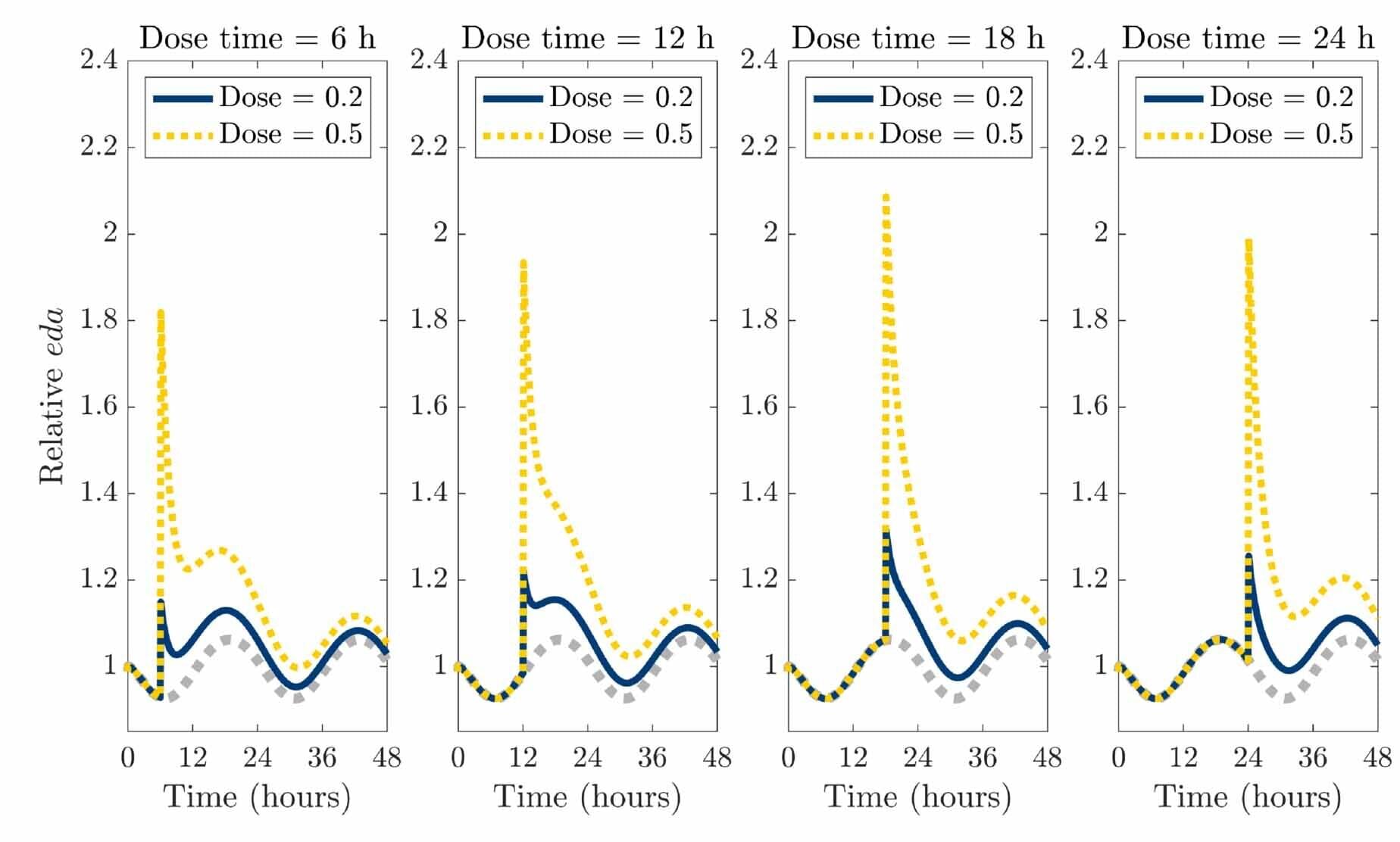Researchers at the University of Michigan have developed a mathematical model that reveals how our circadian rhythms can have dramatic impacts on how our bodies interact with medicines.
This could help doctors prescribe medicines to have the best intended effect by syncing the dosing up with the natural clocks of their patients.
“These findings provide a mechanistic basis for chronotherapeutics—optimizing drug efficacy by considering circadian timing,” said the new study’s author Tianyong Yao, an undergraduate researcher in the U-M Department of Mathematics. “This could improve treatment for conditions such as ADHD, depression and fatigue.”
